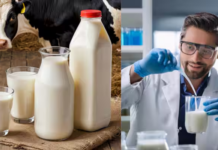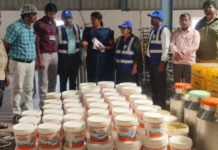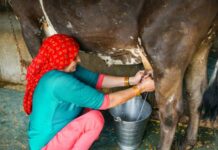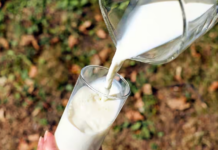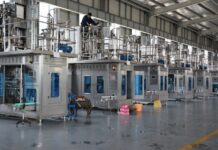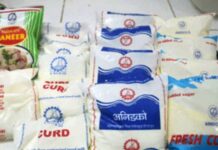New Delhi, November 21, 2023 : It has been developed under a World Bank-funded project and is ready for commercialisation
The University of Agricultural Sciences-Bengaluru (UAS-B) has developed a low-cost, eco-friendly mini refrigerator for cooling of raw milk, which can be used by small dairy farmers to maintain the quality of milk before pouring it at the collection centres.
CT Ramachandra, Prof and Head, Department of Processing and Food Engineering, UAS-B said the solid-state cooling module or the mini-cooling unit has been developed under a World Bank-funded project and is ready for commercialisation.
Peltier Effect
The mini cooling unit has a capacity of five litres and runs on electricity. It can also be operated using a 12 volt battery. The solid state cooling module is an alternative to the conventional cooling system and works on the principle of Peltier Effect, Ramachandra said. “Unlike the conventional refrigeration system, which releases CFC gases due to the use of refrigerants as cooling media, this solid state cooling module does not emit any harmful gases and is an eco-friendly green technology,” Ramachandra said. However, the cooling efficiency of this solid state refrigeration unit is marginally lower than the conventional refrigeration systems.
Small dairy farmers in villages and remote areas can use this mini cooling unit to bring down the temperature of the milk, before pouring it at the local collection centres. When milked, the temperature of the milk that flows from the cow’s udder ranges around 35-37° C and has to be cooled to less than 10 degrees to reduce microbial activity. The developed refrigerator module will help bring down the temperature and maintain it less than 10° C, Ramachandra said.
Ramachandra said the cost of the mini refrigerator module works out to around ₹10,000 per unit and that the university has been getting enquiries for commercialisation of the technology. According to the reports published in dairynews7x7.com .
Though India is the largest producer of milk in the world, a large portion of the milk is lost due to the spoilage due to the microorganism activity and lack of transportation facilities in the rural areas. Raw milk has to be stored under less than 10 degrees to prevent the microbial growth and reduce spoilage and cost-effective cooling units at the farm level would go a long way in reducing the wastage.



